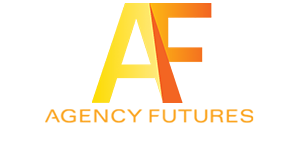
“The path to success in agencyland is via specialization”.
It’s a much touted phrase and one that we find is quite often borne out in reality.
Specialist agencies are generally more profitable, have a bigger ‘moat’ and are able to develop a strong position of authority in their sector.
In deciding where to specialise many agencies will consider doubling down on a platform or technology.
Often this is also overlaid with specialist vertical skills to become even more relevant to a certain market niche or category.
E.g. an AI-driven agency for professional services companies anyone?
ProBotics?
Yeah I know, it’ll never fly.
There is no doubt though that specialization can be a way to avoid client conflict and to increase value all round. As someone once said, two competing clients is a conflict, three is a centre of excellence.
We have recently been reviewing the HubSpot specialist agency market for a client assignment.
We sometimes meet Hubspot-aligned agencies, historically catering to SME clients. These are firms that simply don’t have the budget for Salesforce, Adobe or Microsoft solutions – or the significant customisations that seem to be needed to get them working.
Hubspot has proven a highly valued solution, out-of-the-box and for a long time has been at the vanguard of ‘Inbound Marketing’. Hubspot also once offered quite lucrative commissions on licensing for agencies and has grown a significant partner community.
Historically these ‘inbound’ comms agencies have been reasonable performers from an M&A perspective and are seen as low risk investments, with high numbers of clients (reducing concentration risk), generally good profitability and high levels of recurring revenue.
A number of significant M&A deals have taken place over the last few years, however the challenge is getting to the scale needed to attract serious interest from acquirers.
Some examples:
Smartbug Media acquired by PE firm American Discovery Capital in 2020 (multiple estimated to be >10X). This agency managed to breakthrough to a position of scale. It followed this up in 2023 by acquiring 90-strong Canadian agency Globalia.
My colleague Doug Baxter worked extensively with SmartBug Media, helping them with strategic planning and transaction preparation. In addition to the obsessive focus on Hubspot done well, he attributes their incredible success to the unique culture that was created by the founder Ryan Malone. Ambitious, people centric cultures are always at the heart of high performing agencies.
Another example would be Avidly formed by the initial merger of 4 Scandinavian agencies and then subsequent acquisition of four other agencies, including most recently Hype Dexter in late 2023(deal terms undisclosed).
HubSpot itself has made a number of acquisitions towards becoming a more fully-fledged CRM provider including most recently Cacheflow (October 2024) a platform aimed to strengthen HubSpot’s sales automation and subscription billing management features.
Despite having recently missed selling to Google, Hubspot is continuing to step into the domain dominated by the established Tier 1 CRM giants.
It has transitioned from a relatively simple CRM into a significant ecosystem capable of supporting large-scale, complex operations. HubSpot’s revenue CAGR from 2019 to 2023 has been an impressive 33%, with a projected growth rate of 23% for 2024. It currently holds a 4% share of the CRM market, with projections suggesting an increase to 6% by 2028, capturing a more substantial slice of a market anticipated to expand from $51 billion to $77 billion within the same timeframe.
For agencies, this evolution within HubSpot’s ecosystem is a double-edged sword. On one hand, it provides substantial growth opportunities as larger clients are attracted to Hubspot. On the other, it demands significant up-skilling and investment to meet the more complex requirements of these higher end customers. Implementations typically involve migration from existing CRM systems, but also the integration of many disparate and legacy datasets also suffering from significant data quality issues.
HubSpot’s competitive advantage in this push lies in its focus on ease of integration and a lower cost structure compared to other enterprise solutions. It has also restructured an old agency commission model that instead of rewarding licence sales in perpetuity is now more aligned to these tier one aspirations.
In our view as HubSpot increasingly targets large enterprises, it may encounter challenges in balancing simplicity and the extensive functionalities demanded by complex clients.
That said, it is reshaping the CRM landscape, challenging agencies and service providers in the enterprise domain to adapt and respond. Areas such as the heavy bespoking requirements of Salesforce and others (and the associated services revenues enjoyed by providers) may well reduce as clients seek greater value from their CRM implementations.
One key barrier to adoption is that many providers are caught in exclusive contracts with their software partner provider making it challenging to commit to other platforms.
For agencies seeking new specialist capabilities Hubspot represents a compelling opportunity. Growth-by-acquisition for new capability, increased revenue and geographical footprint is a very under-utilised strategy.
We’ll be watching with interest whether agencies and system integrators focussing on other platforms will move to add Hubspot capabilities.
Let me know your thoughts on Hubspot.
Would you build an agency service around it?
….
If you’re interested in acquiring high-end Hubspot capability, please message me.
At Agency Futures we specialize in helping agency entrepreneurs achieve their aspirations by sensibly employing M&A to strategise, prepare for, and execute transactions.
